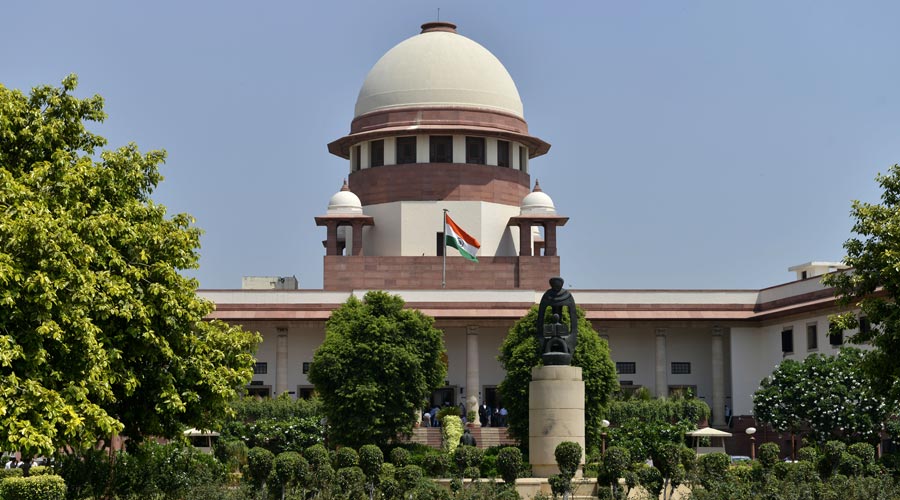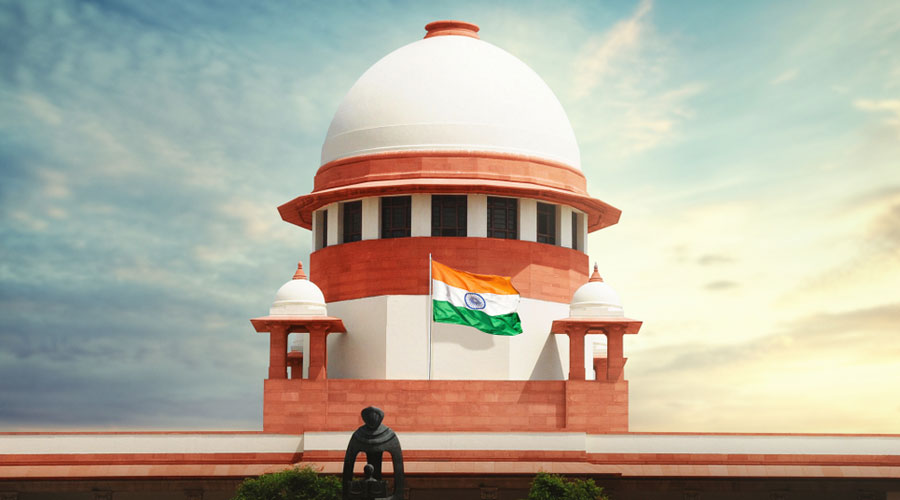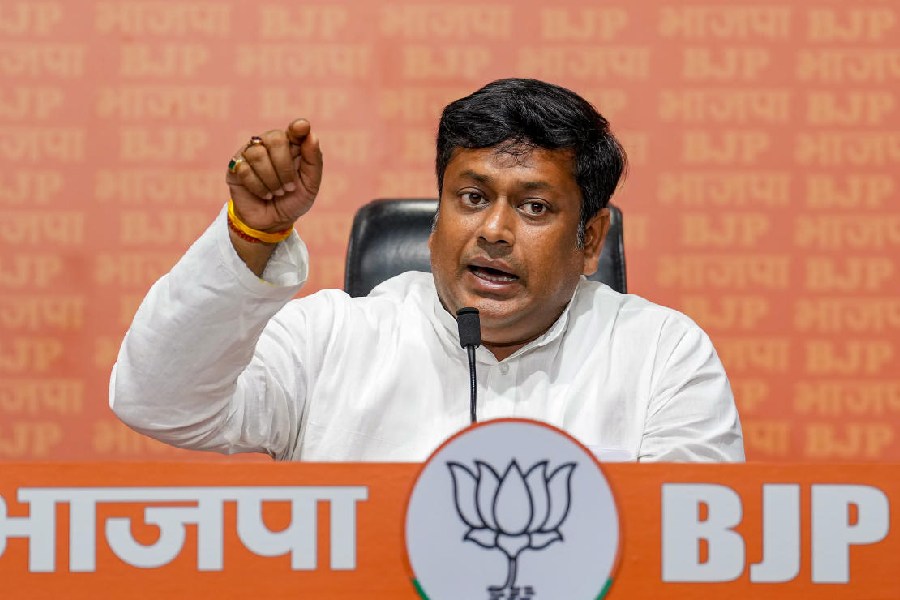The Supreme Court on Monday asked solicitor-general Tushar Mehta to clarify the Centre’s stand on whether Hindus, Jews and followers of the Bahai Faith in states where they are numerically not in majority should be accorded the status of “minorities” for access to reservation benefits.
The court sought the clarification after the Union home ministry took the position that it was for the minority affairs ministry to decide. But the minority affairs ministry adopted the position that it was for the states to determine the issue.
The bench of Justices Sanjay Kishan Kaul and M.M. Sundresh asked Mehta to take appropriate instructions after noting that the home ministry had filed a note with the Supreme Court registry on Monday.
The note said the issue of minority status for Hinduism, Judaism and the Bahai Faith was in the realm of the ministries of law and justice and minority and minority affairs, and the home ministry had nothing to say about it.
Rajendra Kumar Bharti, undersecretary in the Union home ministry, said in the note: “…It is requested that ministry of minority affairs… may deal with the matter in consultation with the ministry of education and the ministry of law and justice and also protect the interest of the MHA (ministry of home affairs) in the writ petition.”
While the Union law ministry is yet to state its position, the minority affairs ministry said in an affidavit filed on March 24 that the power to declare religions and cultural groups as minorities is vested with the states, although Parliament too has concurrent jurisdiction.
On August 28, 2020, the apex court had issued notices to the Union ministries of home, law and justice and minority welfare on a petition that had sought the declaration of Hindus as minorities in nine states to enable them to run and manage their own educational institutions on a par with Muslims, Christians and others who enjoy such benefits under Articles 29 and 30 of the Constitution.
Article 29 relates to the protection of the interests of minorities while Article 30 grants minorities the right to establish and administer educational institutions without much government interference.
The petition, filed by advocate Ashwini Kumar Upadhyay, had challenged the validity of Section 2(f) of the NCMEI (National commission for Minorities Educational Institutions) Act, 2004, “for not only giving unbridled power to the Centre but also being manifestly arbitrary, irrational and offending Articles 14 (equality), 15 (non-discrimination), 21 (life and liberty), 29 and 30 of the Constitution” towards the Hindus in the states where they are said to be in minority.
According to the petition, the act, which came into force in 2005, arbitrarily empowered the Centre to notify five communities (Muslims, Christians, Sikhs, Buddhists and Parsis) as minorities at the national level.
It was submitted that Hindus are merely 1 per cent in Ladakh, 2.75 per cent in Mizoram, 2.77 per cent in Lakshadweep, 4 per cent in Kashmir, 8.74 per cent in Nagaland, 11.52 per cent in Meghalaya, 29 per cent in Arunachal Pradesh, 38.49 per cent in Punjab, and 41.29 per cent in Manipur.
But the Centre has not declared them “minority” and thus the Hindus are not protected under Articles 29 and 30 and cannot establish and administer educational institutions of their choice, the petition said.
The petition also mentioned the followers of Judaism and the Bahai Faith in these states.











